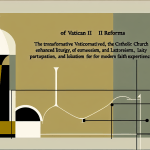Catholicism and Environmental Stewardship: A Call to Action for Creation Care
In recent years, the conversation surrounding environmental stewardship has gained momentum across various sectors, with religious communities increasingly engaging in the dialogue. Among these, Catholicism stands out as a faith deeply intertwined with the values of caring for creation. In this blog post, we will explore the relationship between Catholicism and environmental stewardship, highlighting the Church’s teachings, the theological basis for ecological responsibility, and practical steps for individuals and communities to embrace sustainability.
The Theological Foundation of Environmental Stewardship in Catholicism
At the heart of Catholicism lies a profound respect for creation, rooted in the belief that God is the creator of all things. The second chapter of Genesis describes God creating humans in His image and granting them dominion over the Earth, a concept often misinterpreted as a license for exploitation. However, Catholic teaching emphasizes that dominion is not a license for degradation but rather a call to stewardship. This means recognizing the responsibility to care for and protect the environment.
The Papal Influence on Environmental Issues
Pope Francis has been a pivotal figure in advocating for environmental stewardship within the Catholic Church. His encyclical Laudato Si’: On Care for Our Common Home underscores the urgent need for a collective response to environmental degradation and climate change. In Laudato Si, Pope Francis articulates the interconnection between social injustice and environmental issues, reminding us that a healthy planet is intrinsic to human dignity. His call for “integral ecology” challenges individuals and communities to consider the ethical implications of their actions on both the environment and the marginalized.
The Role of Social Justice in Environmental Stewardship
Catholicism inherently intertwines social justice with environmental stewardship. The Church teaches that care for the Earth is linked to the dignity of the human person, particularly the poor and vulnerable who are disproportionately affected by environmental crises. The Catechism of the Catholic Church emphasizes the duty to protect the environment, affirming that “the Earth is given to mankind as the common home.” This perspective compels Catholics to advocate for policies that promote sustainable development, reduce poverty, and protect vulnerable communities from the impacts of climate change.
The Concept of Creation Care
The idea of “creation care” is central to Catholic environmental ethics. It embodies the belief that caring for the environment should be a fundamental aspect of the Christian life. Scripture, especially in the Psalms and the books of the prophets, celebrates the beauty and goodness of creation, revealing the divine nature of the world around us. Catholics are called to appreciate and preserve this beauty, recognizing how it reflects God’s greatness.
Practical Steps Towards Environmental Stewardship
Catholics can make a significant impact on environmental stewardship through various practical actions. Here are several initiatives that individuals and parishes can adopt to promote sustainability:
1. Reduce, Reuse, Recycle
Encouraging a culture of reducing waste, reusing materials, and recycling products is fundamental. Parishes can organize workshops on sustainable practices, urging parishioners to evaluate their consumption habits and seek eco-friendly alternatives.
2. Sustainable Gardening and Agriculture
Community gardens and farmers’ markets can be implemented within Catholic communities, providing locally grown produce and fostering a connection to the Earth. Teaching parishioners about organic farming and sustainable practices not only enhances food security but also strengthens community ties.
3. Energy Efficiency Initiatives
Transitioning to energy-efficient practices within churches can demonstrate a commitment to environmental stewardship. Simple steps such as installing LED lighting, using energy-efficient appliances, and incorporating solar energy can significantly reduce the carbon footprint of a parish.
4. Advocacy and Education
Catholic communities can engage in advocacy efforts that promote environmental policies at local, national, and global levels. Additionally, educating parishioners on climate change and environmental issues through sermons, study groups, and community events can raise awareness and inspire action.
5. Engage in Global Initiatives
The Catholic Church is part of global networks advocating for climate justice and environmental protection. Engaging with international organizations, participating in climate rallies, and supporting initiatives such as the Global Catholic Climate Movement can amplify local efforts and align with a broader mission.
The Importance of Youth Engagement
The future of environmental stewardship in Catholicism relies heavily on engaging young people. Catholic youth are increasingly passionate about social and environmental issues, viewing them as integral components of their faith. Empowering youth through educational programs, service projects, and leadership roles can harness their energy and creativity for effective environmental action.
Youth groups can organize clean-up drives, tree planting events, and awareness campaigns, making a tangible impact in their communities. Building a strong foundation for environmental responsibility among the younger generation is vital for the future stewardship of creation.
Conclusion: A Faithful Response to Environmental Crises
Catholicism and environmental stewardship are profoundly connected, embodying a call to respect creation and advocate for justice. As stewards of God’s creation, Catholics have a moral obligation to respond to environmental crises with compassion, urgency, and action. By following the teachings of the Church, drawing inspiration from Pope Francis, and engaging in sustainable practices, Catholics can fulfill their duty to care for the Earth and promote a healthier, more just world for all.
Through collective efforts, we can create a culture of ecological responsibility that reflects our faith and respects the beauty of God’s creation. Let us unite in this mission, understanding that caring for our planet is not just an environmental issue, but a deeply spiritual one that speaks to the very essence of our faith. By embracing Catholicism and environmental stewardship, we can work towards a sustainable future, safeguarding our common home for generations to come.




